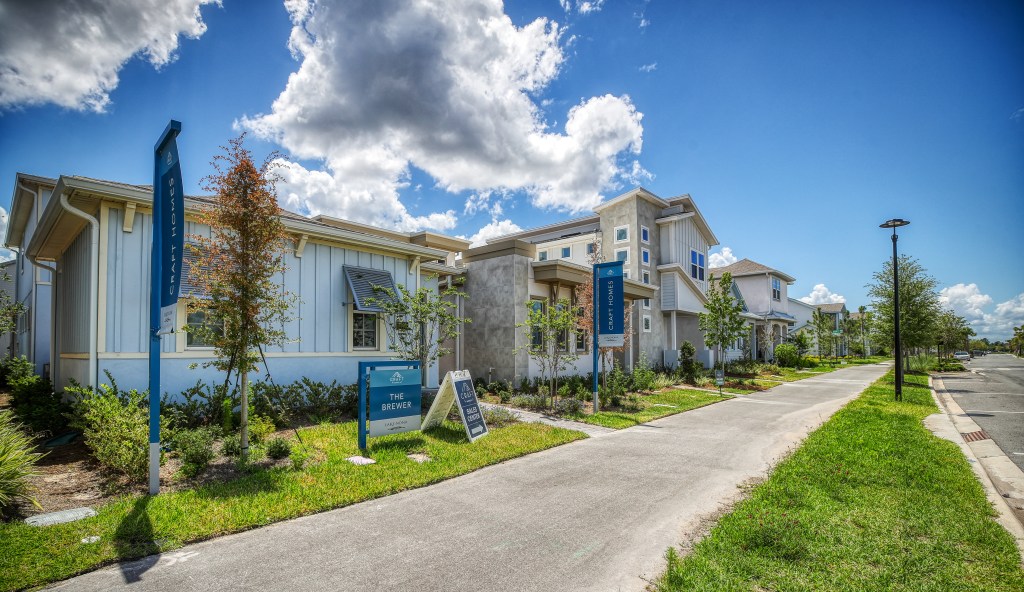Surge in Central Florida County Budgets: An In-Depth Analysis
In recent years, budgets across Central Florida counties have experienced exponential growth, primarily driven by rising property tax collections. An analysis by the Orlando Sentinel reveals that Orange County’s annual spending plan has surged by $1.7 billion since 2020, an increase of approximately 31%.
Rising Property Tax Collections
Property tax collections in Orange County have witnessed a striking increase of about 40%, contributing significantly to the swelling county budgets. Other major counties in Central Florida have seen similar trends, with budgets expanding by at least $100 million over the same timeframe.
Budget Growth Breakdown:
- Orange County: $1.7 billion increase
- Seminole County: 22% increase
- Lake County: Up to 93% increase
- Osceola County: Tax collections surged by 67%
Orlando, for instance, brought in an additional $100 million in 2024 compared to 2020, translating to a 26% increase in its budget.
Political Reactions: Calls for Tax Reforms
The rapid increase in local government budgets has caught the attention of Governor Ron DeSantis and other Republican leaders. DeSantis has criticized local governments for what he describes as "massive expansions" in spending, arguing that homeowners are struggling under the weight of these increases.
Key Points from Governor DeSantis’ Perspective:
- Local governments are thriving financially while homeowners suffer.
- Residents, even with homestead exemptions, aren’t shielded from rising property assessments.
- There’s a strong call for property tax cuts or even complete abolishment.
Legislative Actions
Despite the Governor’s proposals, there has been considerable disagreement in Tallahassee. The Legislature recently ended a session without establishing a budget or addressing potential tax reforms. However, lawmakers have begun discussions around property tax adjustments.
The Reality for Homeowners: Tax Bills vs. Budgets
While it’s evident that county budgets have grown, homeowners have not experienced the same drastic hikes in their property tax bills. This is largely due to:
- Homestead exemptions that limit increases on primary residences to 3% per year under the Save Our Homes law.
- Local officials argue that recent budget expansions are necessary to cover inflated costs, essential service expansions, and infrastructure developments due to population growth.
Local Government Claims:
- Officials assert there is no financial bloat; budgets reflect rising costs and demands for services.
- For example, costs for public projects have increased significantly— a project that once cost $500,000 now can reach $750,000.
Insights from Local Officials
Locals, like Seminole County Commissioner Lee Constantine, highlight the pressures local governments face from inflation and rising costs. In his view:
- Taxpayers are often misinformed about the fiscal realities faced by governments.
- The majority of residents understand their taxes fund necessary services rather than excess spending.
Community Perspectives
Residents like Bill Hyde, a retiree, express frustration with rising tax bills that consume resources they wish to allocate elsewhere, such as food and essential living expenses. Hyde, who has long paid off his home, echoes a sentiment shared by many in the community:
“We have to live within our means, and the government should, too.”
Future Considerations: Assessing the Tax Environment
As legislators contemplate changes to property tax structures, options may include:
- Introducing new homestead exemptions.
- Requiring municipalities to hold separate referendums on property tax rate adjustments.
- Implementing the rollback rate, where counties would adjust rates to match previous year collections.
The Republican Party of Florida has initiated a campaign promoting the adoption of rollback rates by all counties, arguing for fairer tax practices amid rising property values.
Economic Implications
Economists warn that significant cuts to property taxes could necessitate increases in other areas, such as state sales tax. For example, abolishing property taxes might require states to double the sales tax to 12%, posing challenges for local service funding.
Conclusion: A Delicate Balancing Act
Local officials stress that increased property tax revenues are vital for funding essential services, particularly as Central Florida navigates rapid growth and rising costs. The debate over property taxes reflects broader issues of fiscal responsibility and community needs. As discussions continue in Tallahassee, local governments aim to balance budgets while ensuring service delivery meets the demands of an expanding population.
Community Action
Residents are encouraged to stay informed and actively participate in discussions to shape future tax policies, ensuring they reflect the needs and realities of their communities.


